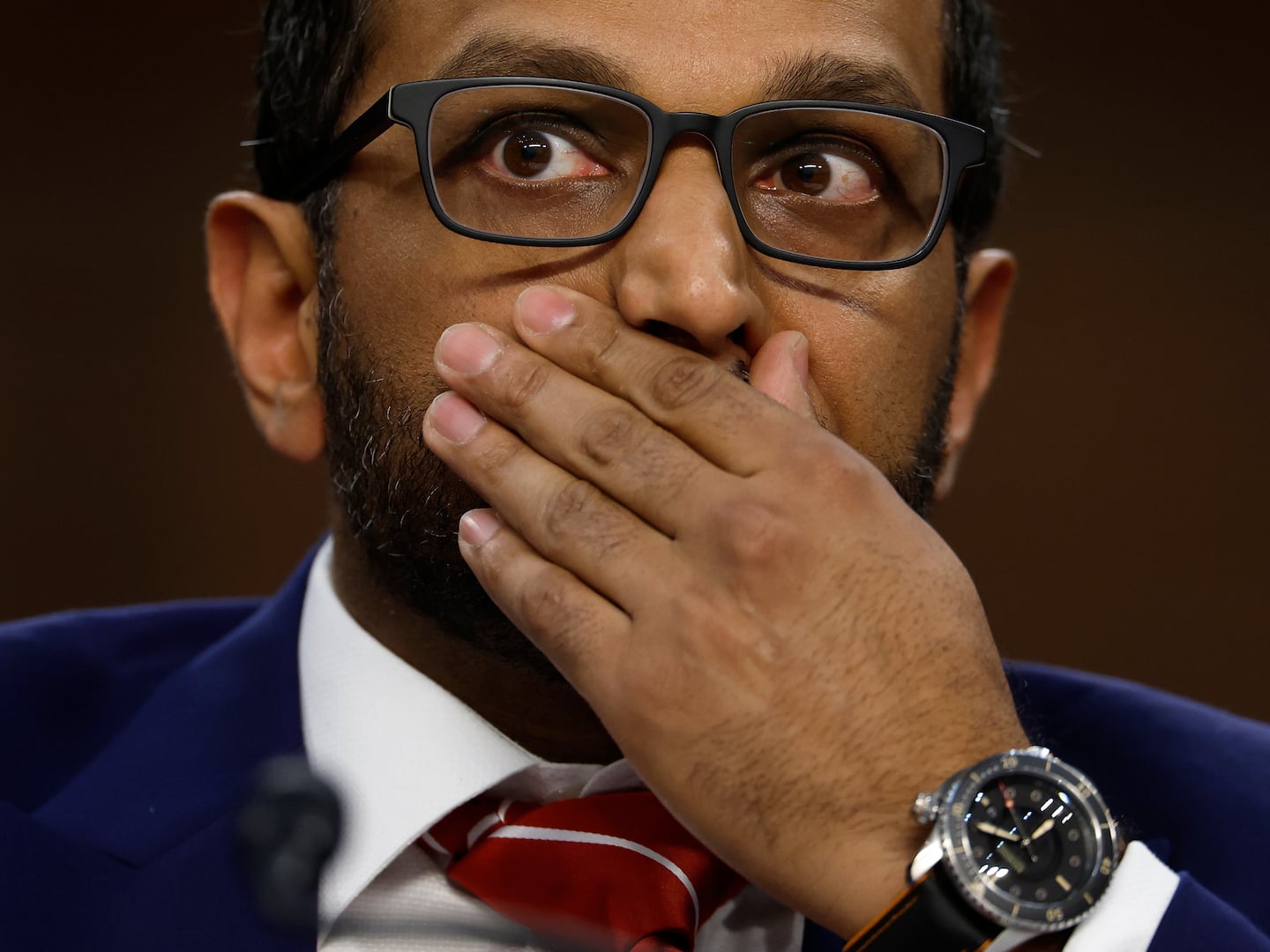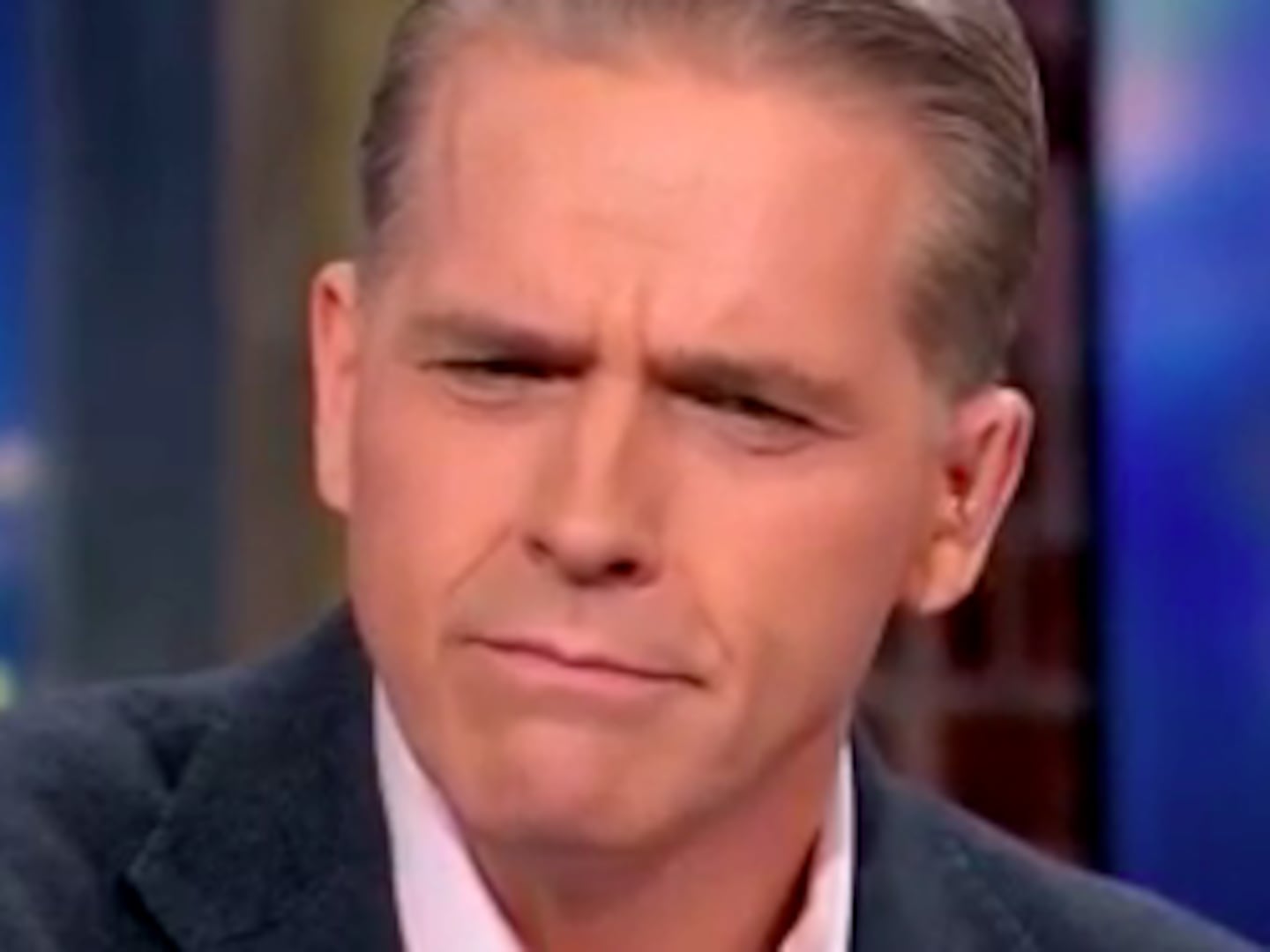
The old adage “the urgent drives out the important” was in overdrive on Wednesday. Secretary of State Clinton gave a speech about what is perhaps the most important security issue the United States faces, and certainly the issue that as a senator, candidate, and president, Barack Obama has indicated he cares about most. And did Americans read about it? No. But perhaps—in terms of what matters most to keep us safe in the decades ahead—we should.
It makes for great cocktail-party chatter—and is, in fact, true—that we face no security threat greater than nuclear weapons. Think about it: Would we care about North Korea if it didn’t have the bomb? Only as a post-dated communist collectors’ item, and a humanitarian tragedy. Pakistan without the bomb? A mess, but not an existential one. Even Afghanistan, if we weren’t concerned about extremist groups building strength across the border to go after Pakistan’s government and weapons, would slip down the to-do list a notch or two.
It seems like the makings of a great news story: Obama entrusts his highest national-security priority to his erstwhile rival, whom he battled so bitterly on national security. But no, not so much.
So the agenda to reduce, control, and ultimately eliminate nuclear weapons has unbelievable bipartisan support—former secretaries of State and Defense, national security advisers, senators, generals. Chuck Hagel, Zbigniew Brzezinski, Lee Hamilton, and Tony Zinni all support working to eliminate nuclear weapons.
The anti-nuclear push, by the way, is also hugely popular internationally and wins the U.S. much goodwill on other issues when we take it seriously—not to mention being the deciding factor, or so the committee said, in winning Obama a Nobel.
But, and there is always a but, it is wonky beyond belief. Are many Americans thinking about how our stance on the NPR, or the QDR, or the RRW, is going to affect the atmosphere at the prepcom for the revcon on the NPT? Probably not. But one question we should be asking is: How does what we do with all these initials at the U.N. help us with Iran and North Korea?
The secretary of State to the rescue. Her inner wonk is never far below the surface, and she embraced it fully Wednesday. In sum, Secretary Clinton’s to-do list:
1. Make major speech drawing comprehensive connections among U.S. core national-security interests, key regional threats, and global efforts to construct rules and sanctions around the possession and use of nuclear weapons—Obama’s highest personal national-security priority. Spank North Koreans and Iranians. Signal significant update to how U.S. views role of nuclear weapons. 2. Observe almost nonexistent press coverage of same. 3. Grant five more interviews to reporters wondering whether she isn’t marginalized, and how she is spending her time. 4. Emit trademark deep chuckle, go out for a drink. 5. Repeat.
Seriously. Obama has made, as Fareed Zakaria observes, an “all-in” bet that the U.S. can be a more cooperative player in the international system and make that pay off for our national security. He has also bet, as Zakaria would surely agree, that he can twin that international cooperation with pretty tough national-security stances, even tough love to the international community, and make that pay off.
It seems like it has the makings of a great news story: Obama entrusts his highest national-security priority to his erstwhile rival, whom he battled so bitterly on national security. But no, not so much, as Josh Rogin pointed out over at Foreign Policy.
But fear not. Here, in Clinton’s own words, is what you need to know if:
You’re still confused about the whole “international cooperation” thing:
Whether we seek to prevent the smuggling of dangerous nuclear materials, establish a new international framework for civil nuclear-energy cooperation, increase the IAEA’s budget, or persuade governments with nuclear-weapons ambitions to abandon their quest, we can only achieve our goals through cooperation with others…
It’s easy to advocate a go-it-alone approach that ignores the cooperation needed to address universal challenges. But we have seen the failed results of this approach. The more difficult, but more productive path is to engage our allies and partners around the world in that hard work of diplomacy.
You’re a North Korean: Better come back to the negotiating table, pronto. We’ve got the Chinese et al. lined up with us.
Its leaders should be under no illusion that the United States will ever have normal, sanctions-free relations with a nuclear-armed North Korea.
You’re an Iranian politico: We’re onto the gambit about sending a low-level negotiator and then trying to walk back what you agreed to.
The door is open to a better future for Iran. But the process of engagement cannot be open-ended. We are not prepared to talk just for the sake of talking. As President Obama noted after the Oct. 1 meeting in Geneva, we appear to have made a constructive beginning. But that needs to be followed up by constructive actions. In particular, prompt action is needed on implementing the plan to use Iran’s own low-enriched uranium to refuel the Tehran research reactor, which is used to produce medical isotopes.
You’ve been spending quality time with Senator Jon Kyl, R-Fallout Shelter, and you think we might maybe need to test some new nuclear weapons:
But the fact is, we’ve essentially had a moratorium on testing. It’s been bipartisan through these four administrations over these last 20 years. And we recognize the legitimate questions that some in the Senate have posed about how we take steps to ensure the sustainability and effectiveness of our nuclear stockpile without testing. We believe we have technical answers to that and that we will be discussing those in greater depth.
You worship at the church of the late Ronald Reagan, who famously embraced arms-control agreements with the mantra “trust, but verify”: Remember how the International Atomic Energy Agency found more weapons in Iraq than the U.S. ever did? Know how it’s back in Iran right now? The IAEA should be able to go more places faster and ask tougher questions. Transform it from the county sheriff to the state police.
Enhancing the IAEA’s capabilities to verify whether states are engaging in illicit nuclear activity is essential to strengthening the nonproliferation regime. The IAEA’s additional protocol, which allows for more aggressive, short-notice inspections, should be made universal, through concerted efforts to persuade key holdout states to join.
You wonder why, exactly, we’re still talking about nuclear weapons when it’s so obvious that they don’t help us fight stateless terrorists, cyberwarfare, economic warfare, or street-by-street insurgencies such as Iraq and Afghanistan. So does Hillary.
Clinging to nuclear weapons in excess of our security needs does not make the United States safer. And the nuclear status quo is neither desirable nor sustainable. It gives other countries the motivation or the excuse to pursue their own nuclear options.
Heather Hurlburt, the executive director of the National Security Network, was from 1995-2001 a speechwriter to President Clinton and Secretaries of State Albright and Christopher; from 2005-2007 she was an occasional speechwriter for then-Senator Clinton.






